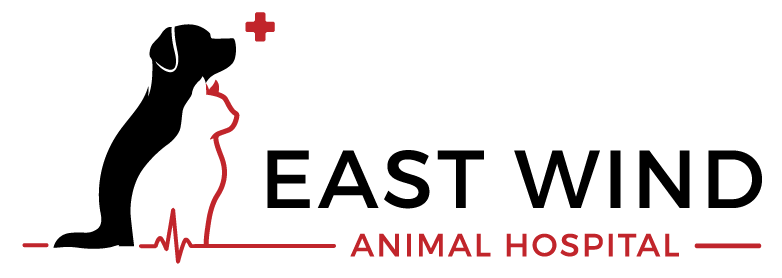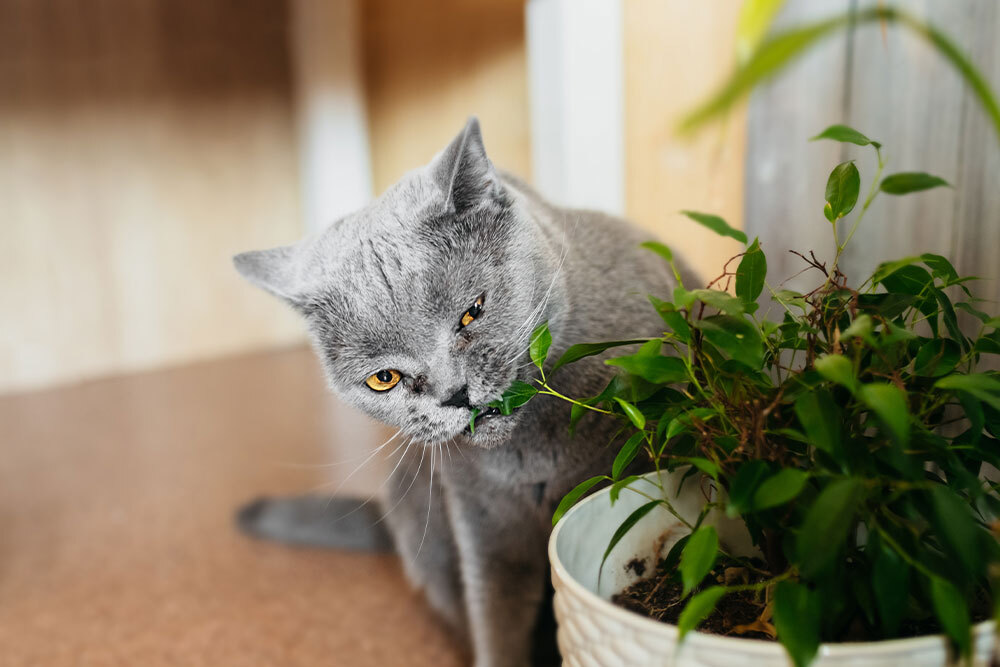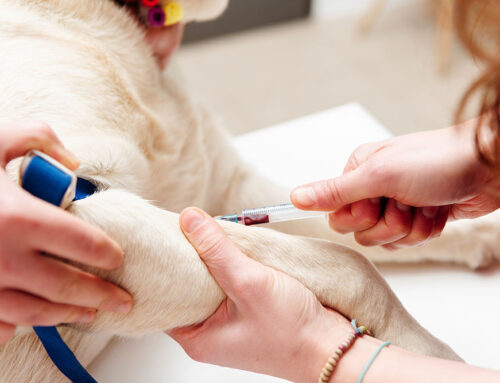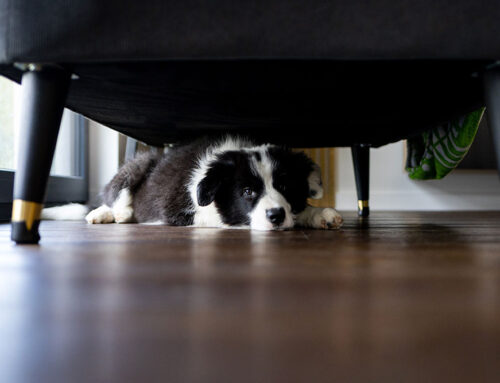Is Your Pet Safe? Pet Poison Control Tips You Need to Know!
There’s nothing quite like the moment you realize your pet just licked, chewed, or swallowed something they weren’t supposed to. Maybe it was a dropped grape, a chewed pill bottle, or a mystery plant leaf that disappeared just a little too fast. At East Wind Animal Hospital in Willow Grove, PA, we understand how scary these moments can be- it’s part of the reason we offer urgent care.
Pets explore the world with their mouths, which means even the most vigilant owners can find themselves facing a potential poisoning situation. The good news? Most incidents are preventable with a little awareness and preparation. This guide breaks down what pet poisoning is, what to watch for, how to respond, and most importantly, how to prevent it.
What Is Pet Poisoning?
Pet poisoning happens when a dog or cat ingests, inhales, or absorbs something harmful to their body. Their systems are very different from ours- what seems harmless to us (like onions or ibuprofen) can be dangerous, even fatal, to them. Some toxins act quickly, others take time, and symptoms aren’t always obvious right away.
That’s why it’s so important to know the most common pet emergency scenarios and the signs that something may be wrong.
Common Culprits: Foods and Substances That Can Harm Pets
Pets don’t know that the snack on the counter or the pill that rolled under the couch could hurt them. Here’s a breakdown of everyday risks:
| Substance | Why It’s Dangerous | More Info |
| Chocolate | Contains theobromine and caffeine; toxic to dogs and cats. Can cause vomiting, restlessness, and seizures. | Learn more |
| Xylitol | Found in sugar-free gum and baked goods. Triggers a dangerous insulin spike, leading to liver failure. | Paws off Xylitol |
| Onions and Garlic | Damage red blood cells, leading to anemia. Dangerous in all forms: raw, cooked, powdered. | |
| Grapes and Raisins | Cause kidney failure in some dogs. The exact toxin is unknown. | |
| Alcohol | Affects the nervous system. Even small amounts can cause vomiting and difficulty breathing. | |
| Medications | Many human medications, including painkillers and antidepressants, are toxic to pets. | |
| Drugs | Drugs have become increasingly common sources of pet toxicity, particularly in areas where cannabis is legal | Illicit Drugs and Marijuana |
| Cleaning Products | Bleach, disinfectants, and laundry pods can burn the mouth or digestive tract. | |
| Antifreeze | Tastes sweet but contains ethylene glycol, a fast-acting and deadly toxin. | |
| Plants | Lilies, tulips, sago palms, and others can be toxic. Be especially careful of lilies and cats! | Toxic and Non-Toxic Plants – ASPCA |
| Rodenticide | Eating mouse or rat bait, or eating a mouse who has eaten the bait, can cause deadly blood clotting issues that may take several days to appear. | Rodenticide safety info |
Signs Your Pet May Have Been Poisoned
Symptoms of poisoning vary depending on what was ingested, how much, and your pet’s size and health. Here are some of the most common signs:
- Gastrointestinal: Vomiting, diarrhea, drooling, lack of appetite
- Neurological: Tremors, disorientation, seizures, unusual lethargy
- Respiratory: Coughing, difficulty breathing, rapid or irregular heartbeat
- Other Red Flags: Pale gums, excessive thirst, or changes in behavior (hiding, restlessness, agitation)
If you notice any of these, or if your pet is acting off and you suspect they got into something they shouldn’t have, take action quickly. Emergency care guidance from the AVMA can help you make informed decisions.
What to Do in a Suspected Poisoning Emergency
Immediate Steps to Take
- Stay Calm: Panicking won’t help you or your pet. Take a deep breath.
- Remove Your Pet from the Area: Get them away from the toxin.
- Preserve the Evidence: Grab any packaging, spills, or chewed items to bring to the vet.
- Call a Professional: Contact us or reach out to ASPCA Poison Control.
Do not induce vomiting unless specifically told to do so by a veterinarian or poison control expert.
What Happens at the Vet
When you bring your pet to East Wind Animal Hospital, our team will assess the situation and determine the next steps, which may include:
- Physical Exam and History: We’ll ask what your pet may have ingested, when it happened, and what symptoms you’ve observed.
- Diagnostics: Blood work, urinalysis, and imaging (like X-rays) may be needed to evaluate internal damage.
- Decontamination: If appropriate, we may induce vomiting, administer activated charcoal, or perform gastric lavage.
- Supportive Treatment: IV fluids, medications, and close monitoring may be necessary, depending on the severity.
- Antidotes: For specific toxins such as antifreeze or rodenticide, we may use targeted antidotes.
How to Poison-Proof Your Home
Prevention is always better than treatment. Here are some practical ways to keep your home safe:
- Store Foods Securely: Keep chocolate, grapes, onions, and other dangerous foods well out of reach.
- Lock Away Medications: Use childproof containers and store all medications, human and veterinary, in closed cabinets.
- Secure Cleaning Supplies: Keep them behind closed doors or in pet-inaccessible areas.
- Rethink Your Plants: Check the ASPCA toxic plant guide before bringing a new plant home.
- Be Watchful Around Guests: Not everyone knows what’s dangerous to pets. Remind visitors not to feed your dog or cat table scraps.
- Read Labels: Products labeled as “natural” or “organic” aren’t always safe for pets. For a comprehensive list of unexpected dangers, explore Don’t Chew On This! and these essential pet-proofing tips.
Life After a Poisoning Incident
After your pet recovers from poisoning, it’s important to continue follow-up care and possibly make changes to your home environment:
- Medication Management: Administer all prescriptions as directed.
- Dietary Support: Your vet may recommend a specific diet to support recovery.
- Ongoing Monitoring: Keep an eye out for delayed symptoms or reactions, and come in for any recommended rechecks.
Prevention becomes a long-term habit- so review storage habits, teach family members about toxin risks, and consider baby-proofing strategies for especially inquisitive pets.
Your Partner in Pet Safety
Poisoning emergencies are frightening, but they don’t have to feel overwhelming. At East Wind Animal Hospital, we’re here to help you through the unexpected. If you’re ever in doubt or concerned about something your pet may have come into contact with, don’t wait- call us or head in right away.
You can also meet our team and learn more about the people dedicated to keeping your pets safe. We’re not just here for urgent care– we’re your partner in prevention, too.
With the right information and quick action, most poisoning cases can be treated effectively. Together, let’s create a home that’s both welcoming and safe for the pets we care about every day.








Leave A Comment